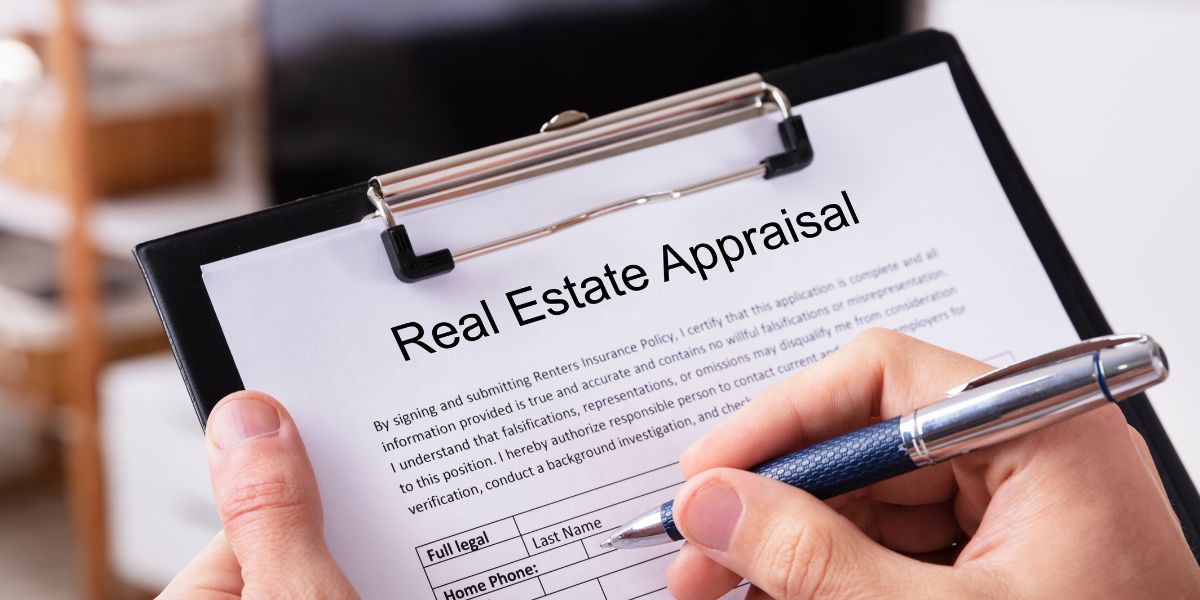Buying a home is one of the biggest financial decisions you’ll ever make, and understanding the steps involved is key to a successful purchase. One of the most critical steps in the process is the home appraisal. As a buyer, the appraisal ensures that the home you’re purchasing is worth the price you’ve agreed to pay, providing you with peace of mind and protecting your investment. It also plays a vital role in your loan approval process, as lenders rely on the appraisal to determine the amount they’re willing to finance.
In this blog, we’ll break down the home appraisal process from a buyer’s perspective, explaining why it matters, how it works, and what you need to know to navigate it confidently.
1. What Is a Home Appraisal?
A home appraisal is an independent, professional evaluation of a property’s market value. It’s not to be confused with a home inspection, which assesses the condition of the property’s systems and structure. Instead, the appraisal focuses solely on determining how much the property is worth based on several key factors.
Here’s what you should know about the appraisal process:
- Who Performs It? The appraisal is conducted by a licensed appraiser who is hired by the lender, not the buyer or seller. This ensures an unbiased assessment of the property’s value.
- What Does It Evaluate? The appraiser considers the home’s size, layout, condition, location, and recent sales of similar properties (known as comparables or “comps”) in the area.
- Why Is It Necessary? The appraisal ensures that the lender isn’t providing a loan for more than the home is worth. For buyers, it serves as a safeguard against overpaying for a property.
Understanding the basics of a home appraisal is the first step in preparing for this critical part of the process when you’re buying a home. In the next section, we’ll explore why this step is so important from a buyer’s perspective.
2. Why Is a Home Appraisal Important for Buyers?
As a buyer, the home appraisal is more than just a formality; it’s a crucial step to ensure your financial interests are protected. Here are the key reasons why the appraisal matters:
- Avoid Overpaying: The appraisal ensures the home’s value aligns with the price you’ve agreed to pay. If the property is appraised for less than the purchase price, it could be a signal to renegotiate or reconsider the purchase.
- Loan Approval: Lenders rely on the appraisal to determine how much they’re willing to finance. Without it, your lender can’t confirm that the property is a secure investment.
- Price Negotiations: A low appraisal can provide leverage to negotiate a lower purchase price or request repairs from the seller. This ensures you’re paying a fair market value for the property.
- Financial Protection: The appraisal acts as a safety net, protecting you from making a poor financial decision that could leave you over-leveraged in the future.
By understanding the role of the appraisal, you can approach this step of the home-buying process with confidence and clarity, knowing it’s designed to protect you.
3. What Happens During an Appraisal?
The home appraisal process is straightforward but thorough. It typically involves a physical inspection of the property, research into comparable sales, and an evaluation of market conditions. Here’s what you can expect:
- Property Inspection: The appraiser visits the home to assess its condition, size, layout, and features. They’ll examine the interior and exterior to note any updates, renovations, or areas needing repair.
- Comparable Sales (Comps): The appraiser researches recently sold homes in the area that are similar in size, style, and condition to determine the property’s value. These comps are often one of the most critical factors in the appraisal.
- Neighborhood Analysis: Location plays a significant role in a property’s value. The appraiser considers factors like proximity to schools, amenities, and market trends in the neighborhood you’re looking at.
- Appraisal Report: After the inspection and analysis, the appraiser compiles their findings into a detailed report. This report includes the home’s appraised value, supporting data, and observations.
The appraisal process typically takes a few days to a week to complete. Once finished, the report is sent to the lender, who will use it to finalize your loan terms. For buyers, it’s important to understand what’s happening at this stage and how it affects the next steps in your home purchase.
4. How Does an Appraisal Impact Your Loan?
The home appraisal has a direct effect on your mortgage loan and the terms your lender can offer. Since the appraisal determines the fair market value of the property, lenders use this value as a baseline for the loan amount. Here’s how the process can impact your home-buying journey:
- When the Appraisal Matches or Exceeds the Offer Price
If the appraised value is equal to or higher than the agreed-upon purchase price, it’s good news for you. Your loan proceeds as planned, and in some cases, you may even gain instant equity in the property. - When the Appraisal Is Lower Than the Offer Price
A low appraisal can present challenges, but it’s not the end of the road. Here are your options:- Renegotiate with the Seller: Many sellers are willing to lower the purchase price to align with the appraised value.
- Pay the Difference: If your budget allows, you can cover the gap between the appraised value and the agreed price with cash.
- Reconsider the Purchase: Depending on your purchase agreement’s appraisal contingency, you may have the option to back out without penalties.
- Lender Loan Limits
Lenders typically won’t finance more than the appraised value, which means a low appraisal could require you to adjust your down payment or loan terms. This highlights the importance of ensuring the property is fairly valued.
Understanding how the appraisal impacts your loan helps you prepare for potential scenarios and empowers you to make informed decisions.
5. Tips for Buyers During the Appraisal Process
As a buyer, there are several ways you can help ensure a smooth appraisal process and protect your investment. Here are some practical tips:
- Communicate Through Your Agent
Allow your real estate agent to handle communication with the appraiser and provide any necessary information, such as details about the property’s upgrades or recent comparable sales in the area. - Understand the Appraisal Contingency
Ensure your purchase agreement includes an appraisal contingency, which allows you to renegotiate or exit the deal if the appraisal comes in too low. - Avoid Over-Improving Before the Appraisal
If you’re considering upgrades to the property after making an offer, wait until after the appraisal is complete. Appraisers focus on existing value rather than potential future improvements. - Review the Appraisal Report
Once the report is completed, request a copy and review it carefully. If there are inaccuracies or omissions, work with your agent to address them and potentially request a reconsideration.
These tips can help you navigate the appraisal process with ease, ensuring that your home purchase proceeds without unnecessary complications.
6. Common Buyer Concerns About Appraisals
It’s normal for buyers to feel a bit anxious about the appraisal process, as it can impact the final stages of purchasing a home. Here are some common concerns and how to handle them:
- What if the Appraisal Comes in Too Low?
If the appraised value is lower than the offer price, don’t panic. Work with your agent to explore your options, which may include renegotiating the price, paying the difference, or walking away if your contract includes an appraisal contingency. - Can I Dispute a Low Appraisal?
Yes, if you believe the appraisal is inaccurate, you can request a reconsideration of value through your lender. This typically involves providing evidence, such as additional comps or documentation of property improvements, to support a higher valuation. - Can I Get a Second Appraisal?
While it’s possible, lenders rarely allow it unless there’s a valid reason, such as errors in the initial appraisal. Speak with your lender to understand their policy.
Being aware of these potential challenges and how to address them can help ease your concerns and keep the home-buying process on track.
Conclusion
The home appraisal process is an essential step in protecting your investment and ensuring that your dream home is worth the price you’re paying. As a buyer, understanding the purpose and impact of the appraisal can help you navigate this stage with confidence. By knowing what to expect, preparing for potential outcomes, and relying on your real estate agent for guidance, you can make informed decisions that support your financial goals.
If you’re ready to take the next step in your home-buying journey or have questions about appraisals, reach out to a trusted real estate professional for personalized advice. With the right support, you’ll be well-equipped to navigate the process and secure the perfect home.



